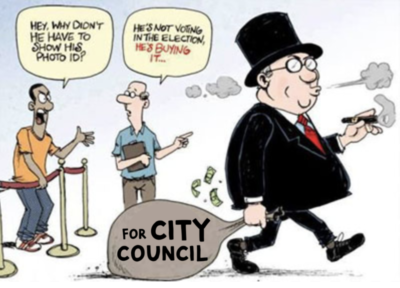On May 12th, INDYWeek published an editorial critical of City Council’s new Tax Increment Grant (TIG) policy. Here are some excerpts from the piece:
“While the TIG is being sold as an economic development tool that will secure public benefits for Raleigh residents, affordable housing as a public benefit is not a priority in the policy.”
“Essentially, the TIG promises to reimburse developers with property tax revenues for a period of time upon the developer’s execution of a set of agreed-upon “community benefits” for the applicable project.”
“In other words, providing community benefits such as affordable housing and jobs is completely optional for developers who will be repaid millions in public dollars upon the completion of their projects.”
“That’s why city leaders should incentivize developers to build affordable housing to the extent that North Carolina law allows instead of adopting a mechanism that would reimburse developers with city property taxes. So far, this council has failed to persuade developers to take the construction of affordable housing seriously. The TIG does little to do so either, though it pretends to.”
Full INDY editorial – Raleigh’s TIG Policy Won’t Make a Dent in the City’s Affordable Housing Crisis
What the INDY editorial didn’t note is that qualifying for a TIG originally required a development proposal to pass a “BUT FOR” test.
Meaning “BUT FOR” the TIG, the development would not happen. This is because a TIG is intended as an incentive to promote development in underserved or impoverished areas.
But, Raleigh’s Tax Increment Grant (TIG) policy was crafted with a bit of sleight of hand changing the “BUT FOR” to mean that without the TIG the defined “community benefit” would not happen. There is no longer a requirement that without the TIG, the development won’t happen. And, in all likelihood the development will happen without the TIG. Just when you thought you knew what you were supposed to be getting while you were following along with the process, you select a shell and find out what you thought was under it isn’t there after all.
The language from the recently adopted policy is here:
“A TIG may be used to support public-private partnerships through private development investments that generate significant benefits to the public that would not occur but for the grant.”
In the case where a development is going to happen even without a TIG, it makes no economic sense for the city to refund tax money to the developer in order for that developer to provide some additional community benefit. It makes far more sense for the city to collect the full tax amount and then use that tax revenue to fund the city’s most pressing priorities which may or may not be associated with the development.
In most cases a developer has no expertise to create community benefits needed by the city. A developer like Kane has no expertise in creating affordable housing and certainly doesn’t have the expertise to develop and deliver job training. There is just no reason to use a developer as a “middle man” to funnel the city’s tax revenue through for delivering benefits the city already has the expertise and programs to deliver.
Finally, the policy doesn’t specify who decides what constitutes a community benefit. If a developer thinks a soccer stadium will benefit a community, but the community would prefer affordable housing, who gets to decide?
What this all boils down to is that this City Council was bought and paid for with campaign contributions from the development industry. The bill has come due and it’s time for the councilors to pay back their developer benefactors. But, they are doing it with your tax money.




